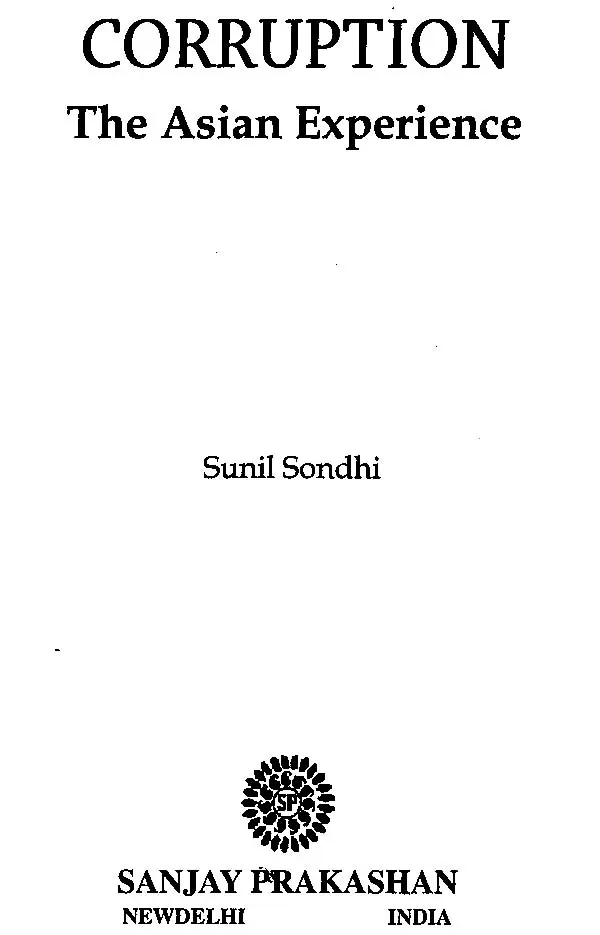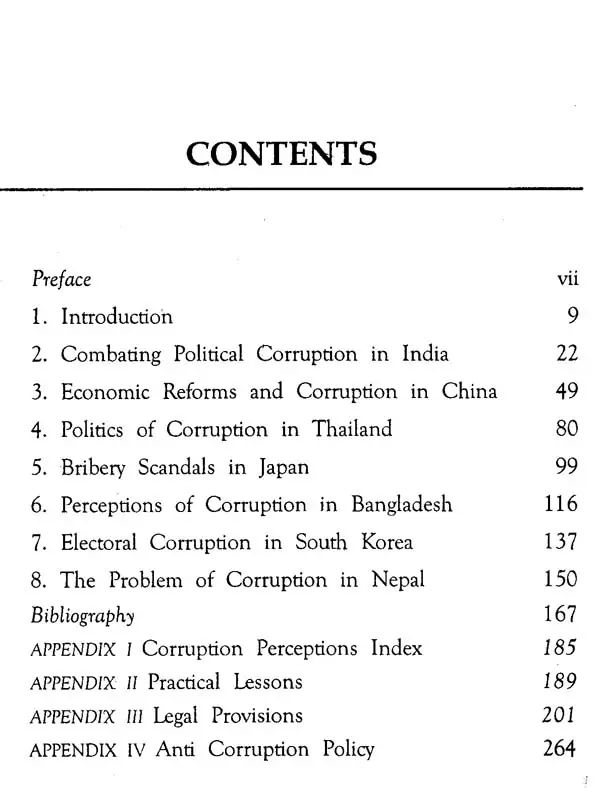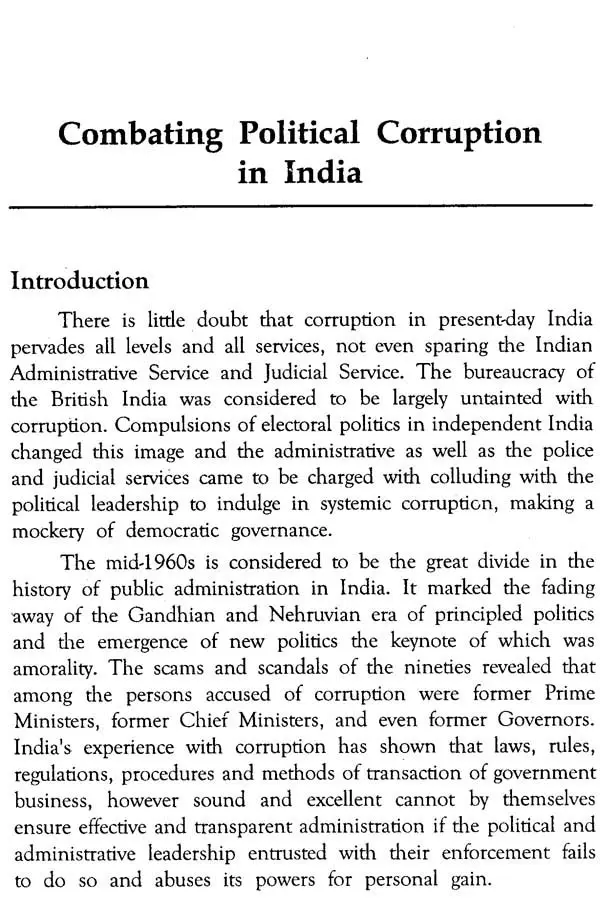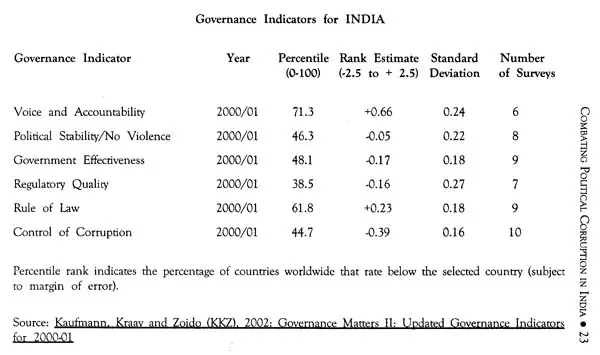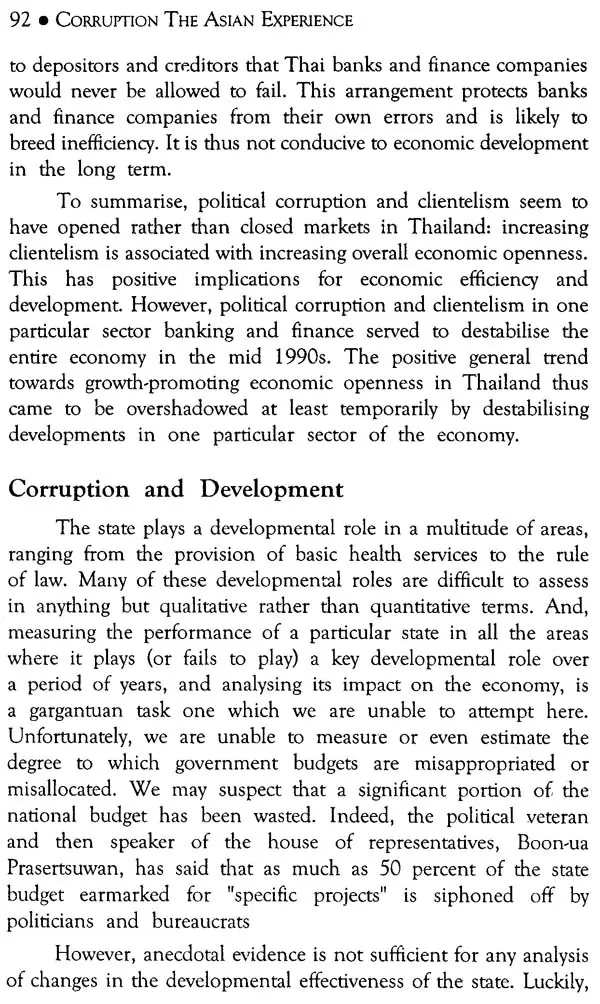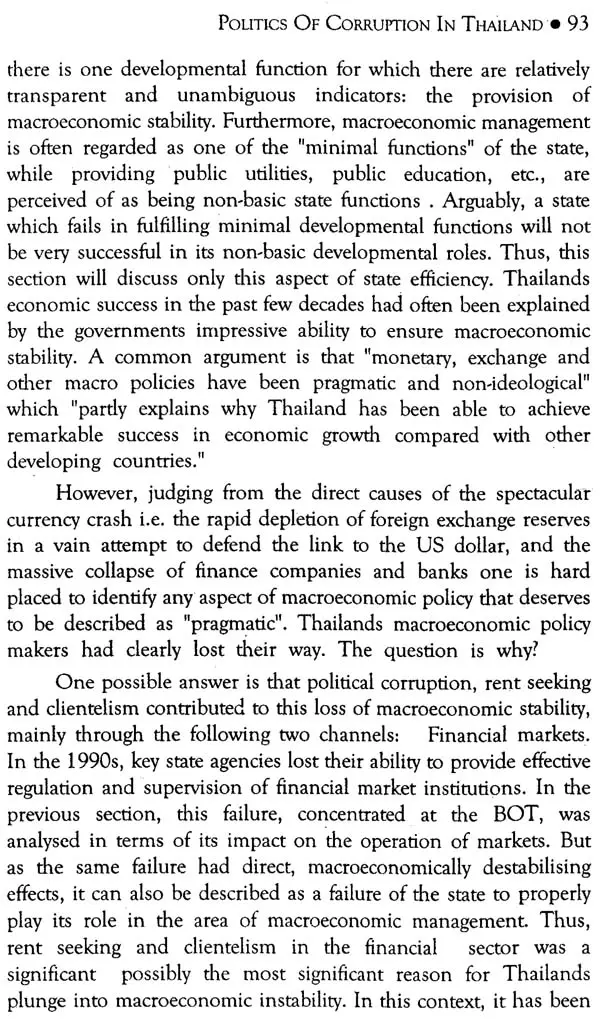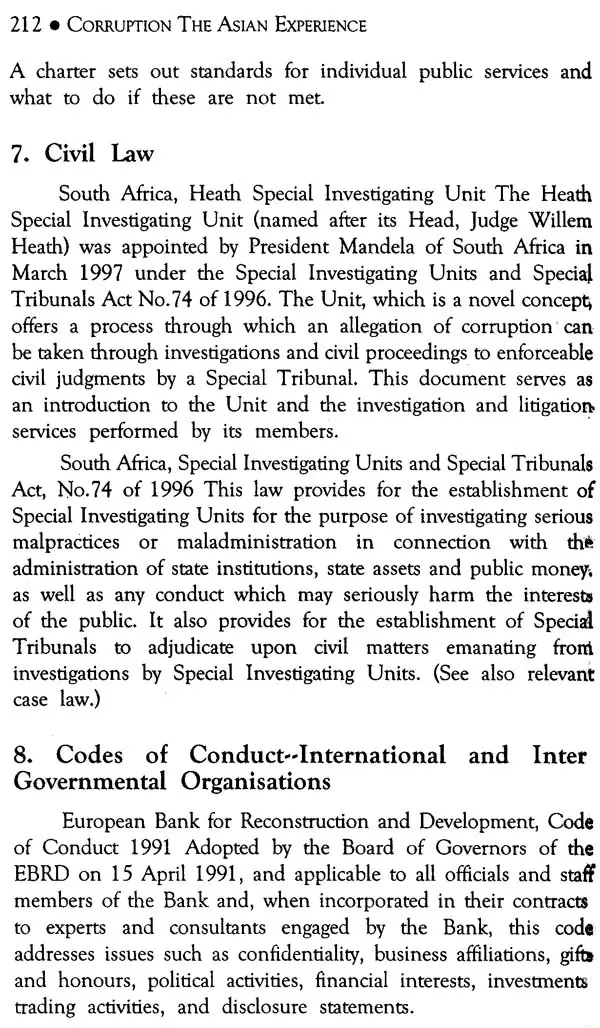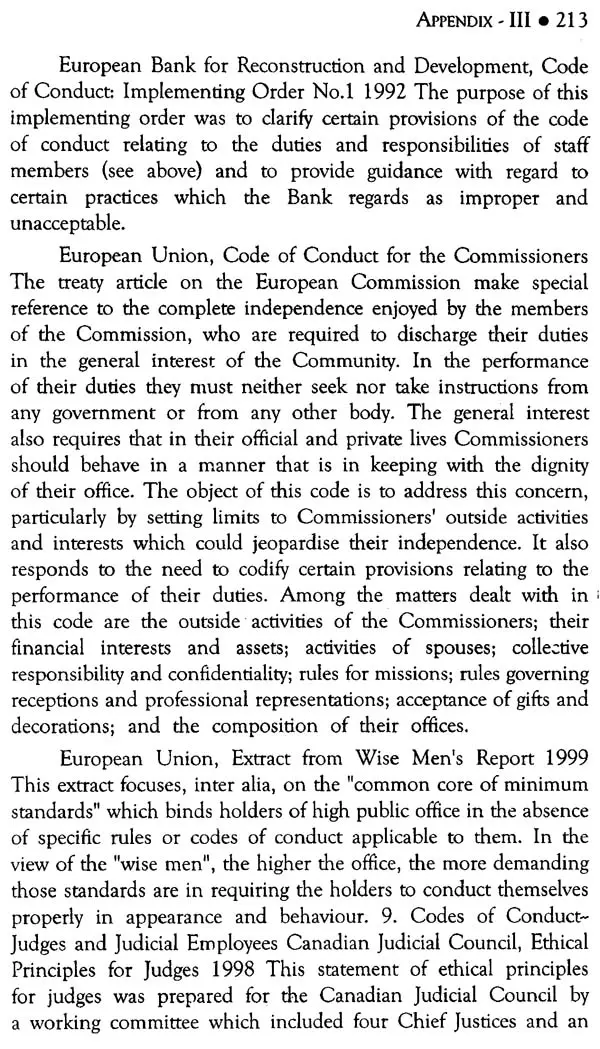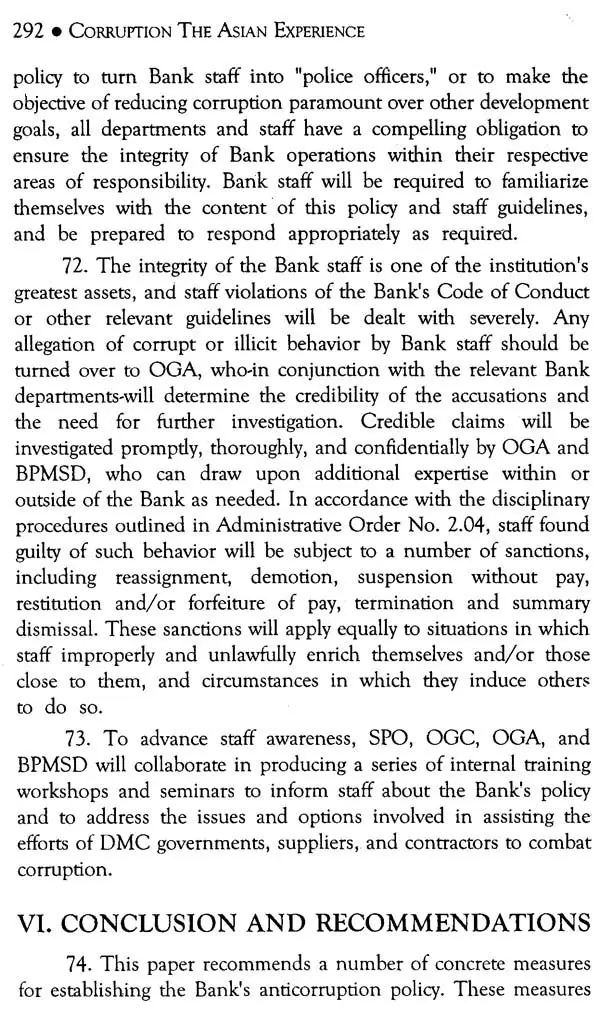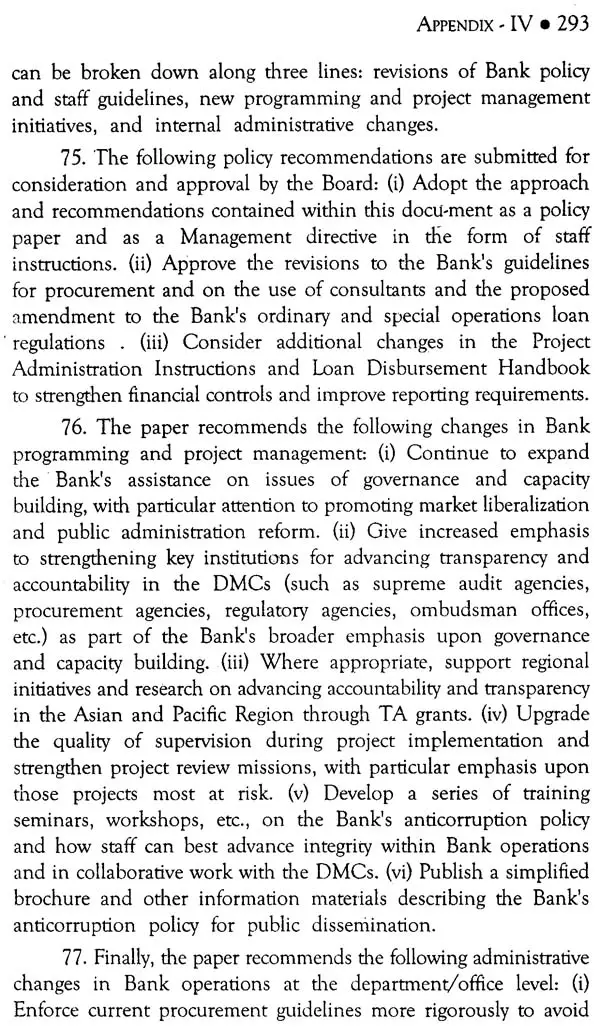About the Book Corruption is one of the greatest challenges of our age-a challenge that must and can be confronted. In the new millennium, we are conscious that corruption, to a greater or lesser extent, poses a threat not only to the environment, human rights, democratic institutions and fundamental rights and freedoms, but it also undermines development and deepens poverty for millions the world over. Fortunately, world wide concern for improved levels of governance and accountability has never been higher-be it in the public or private sector, or within international or non-governmental organisations. The belief that increased transparency can achieve not only more meaningful levels of accountability, but can do so in a highly cost-effective fashion, is now expressed universally. There is also widespread recognition that fundamental and enduring changes in attitudes and practices. can only be brought about by harnessing the energies of all of the points of a society's triangle of forces-the state, the private sector and civil society and not only within countries, but also transnationally. By adopting an holistic approach and by co opting all the principal actors into the process of anti-corruption reform, a country or community can enhance its capacity to curtail corruption to manageable levels. This book! should in a small way contribute to an empowering of leaders within civil society by providing both a rationale for, and examples of, combating corruption. As anti corruption efforts evolve, it is important to note that this book is a work in progress. It is hoped that constructive criticism will lead to further development of the text and to improvement in the analysis of anti corruption strategies being evolved around the world.
About the Author Dr. Sunil Sondhi is Reader in Political Science in the University of Delhi. After completing his doctoral research from the University of Delhi, Dr. Sondhi did post doctoral research at the George Washington University, USA, and University of Toronto, O Canada. During his distinguished academic career spanning more than two decades Dr. Sondhi has bagged many research awards. These include: Harry S. Truman Institute Research Award; John F. Kennedy Foundation Research Award; Olive I. Reddick Award; J. William Fulbright Fellowship: Rockefeller University Research Grant; Gerald R. Ford Foundation Research Grant; and Salzburg Program Fellowship. He has been awarded the Shastri Indo-Canadian Fellowship twice, in 1995 and 1999. In the year 2000, Dr. Sunil Sondhi was awarded the prestigious Canada Asia-Pacific Award by the Department of Foreign Affairs and International Trade. Government of Canada, for research on Governance and Development in South Asia. He is the first Indian scholar to be honoured with this Award. The present book is one of the products of research undertaken under that Award.
Dr. Sunil Sondhi has published. extensively in scholarly journals ont international relations and organization, and has more than one hundred research papers and articles to his credit. His two earlier books are: Science Technology and India's Foreign Policy (1994); and United Nations in a Changing World (1998); and Global Terror (2001) Canada Today & Tomorrow (Co-editor) (2002); Dr. Sondhi has been a Trustee of Indian Association of American Studies, and is now the Secretary-General of Fulbright Alumni Association. A keen mountaineer, Dr. Sondhi has been the President of Delhi Mountaineering Association for six years 1995-2001 and is now a Member of its Governing Council.
Preface Corruption is one of the greatest challenges of our age a challenge that must and can be confronted. There are no short cuts, and no easy answers. In the new millennium, we are conscious that corruption, to a greater or lesser extent, poses a threat not only to the environment, human rights, democratic institutions and fundamental rights and freedoms, but it also undermines development and deepens poverty for millions the world over.
Fortunately, world-wide concern for improved levels of governance and accountability has never been higher-be it in the public or private sector, or within international or non-governmental organisations. The belief that increased transparency can achieve not only more meaningful levels of accountability, but can do so in a highly cost-effective fashion, is now expressed universally. There is also a widespread recognition that fundamental and enduring changes in attitudes and practices can only be brought about by harnessing the energies of all of the points of a society's triangle of forces-the state, the private sector and civil society and not only within countries, but also transnationally. By adopting an holistic approach and by co-opting all the principal actors into the process of anti-corruption reform, a country or community can enhance its capacity to curtail corruption to manageable levels. But none of this can be tackled without enlightened and determined political leadership, without high levels of public awareness and support, and without a motivated and well-led private sector.
Introduction Corruption has emerged as a key development issue in recent years. More and more policymakers, businesses, and civil society. organizations, have begun to confront the issue openly. At the same time the general level of understanding about corruption has risen markedly. Until recently, it was not uncommon to hear someone discuss anti-corruption strictly in law enforcement terms. By contrast, most people working in the field today acknowledge that public education and prevention are equally important. The field has also come to appreciate how critical the role of civil society is for effective and sustained reform.
A number of factors explain this growing emphasis on fighting corruption. Expansion and consolidation of democracy at the grassroots level has enabled citizens to use the vote and new-found civil liberties to confront corruption, prompting leaders and opposition figures to show a stronger anti-corruption commitment. Internationally, since the end of the Cold War, donor governments have focused less on ideological grounds for foreign assistance and concentrated more on trade and development, both of which are undermined by corruption. Countries with high levels of corruption, like India, have found themselves less able to attract investment and aid in a competitive global market. At the same time, business within the country has faced ever stiffer competition with the globalization of trade and capital markets, and has become less willing to tolerate the expense and risk associated with corruption.
Book's Contents and Sample Pages
